Congressional leaders of both parties and the chairman of the Federal Energy Regulatory Commission urged electric cooperatives this week to continue to be a strong, bipartisan voice on issues ranging from infrastructure to the resiliency of the electric grid.
“Policies are made by those who show up,” said House Majority Leader Steny Hoyer, D-Md., as he addressed about 2,000 co-op leaders at NRECA’s 2019 Legislative Conference on Capitol Hill. The co-op leaders are lobbying Congress this week on tax and pension issues, infrastructure improvements and preserving federal transmission assets.
Here are some highlights of what the federal leaders said at the conference:
Hoyer: Climate Change Is Opportunity for Co-ops
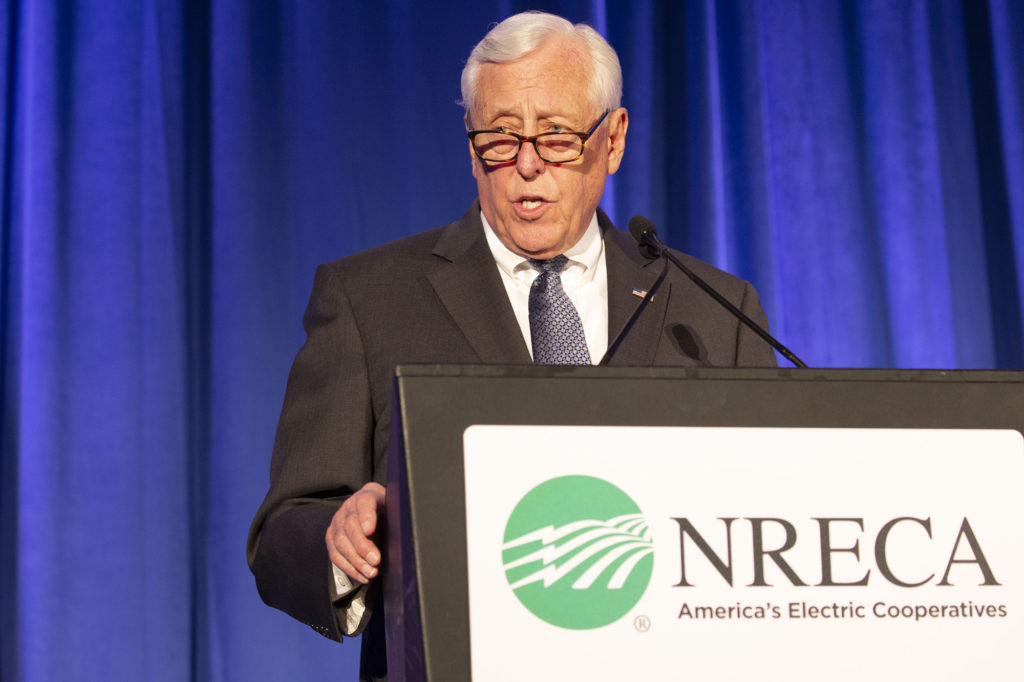
Hoyer said climate change is one of the biggest challenges, and opportunities, facing co-ops. He urged co-op leaders to find a way to make renewable energy cost-effective for consumer-members. Hoyer, who gets his electricity from Southern Maryland Electric Cooperative, said he passes his co-op’s solar farm on his way to work and wants Congress to support such efforts.
“Let us know what you think is technologically possible and how we can help,” Hoyer said.
The House majority leader said congressional leaders would meet with President Trump this week to discuss bipartisan legislation to invest in America’s aging infrastructure. Hoyer said he supports NRECA’s push for an infrastructure bill to go beyond roads and bridges to include expanded broadband service in rural areas and improvements in the electric grid to make it more reliable and resilient.
Hoyer noted that Trump and members of Congress from both parties campaigned on passing a sweeping infrastructure bill. “You would think if we all said that, we could find a way to do it,” he said.
Agreeing on a way to pay for the improvements remains the most difficult part of reaching a deal, Hoyer said.
Manchin: Creating a 21st Century Energy Workforce Is Key
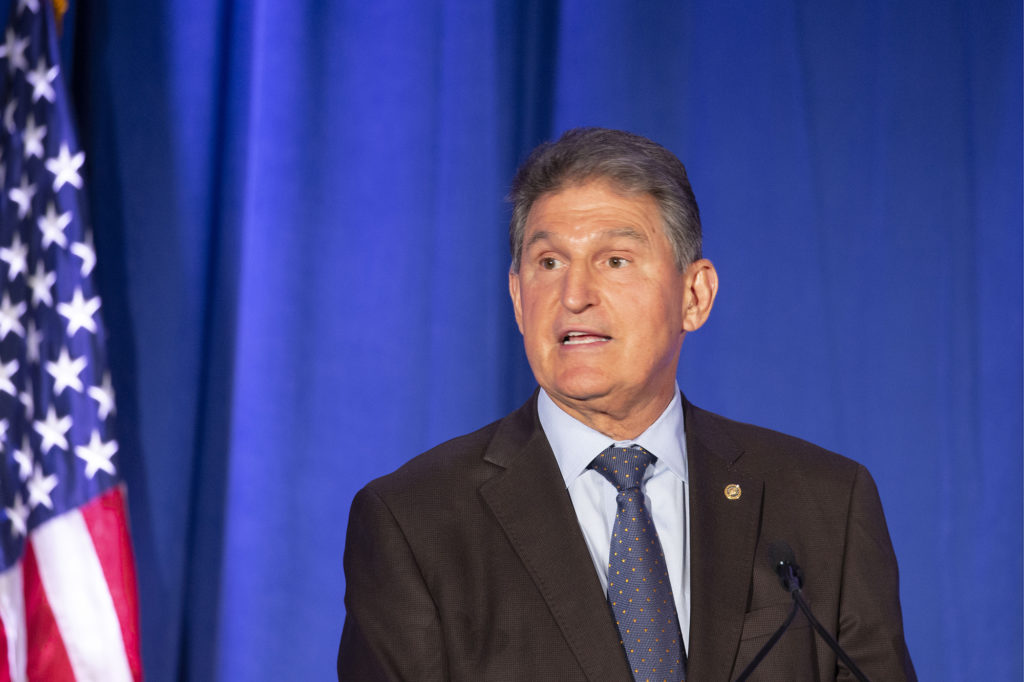
Sen. Joe Manchin, D-W.Va., the ranking member on the Senate Energy and Natural Resources Committee, said the nation is not prepared to fill the 1.5 million new energy jobs that the Department of Energy has estimated the U.S. will need by 2030.
The senator urged co-ops to reach out to local school districts—as many already are—to encourage middle schools and high schools to offer technical training for power plant and other electric sector jobs.
“Start building that workforce of the future that you’re going to need,” he said.
Manchin also told co-ops to get ready to serve an increasing number of consumer-members with electric vehicles. “They’re coming—whether you like it or not,” he said. “You’re going to have to adjust accordingly.”
Chatterjee: Protect the Grid
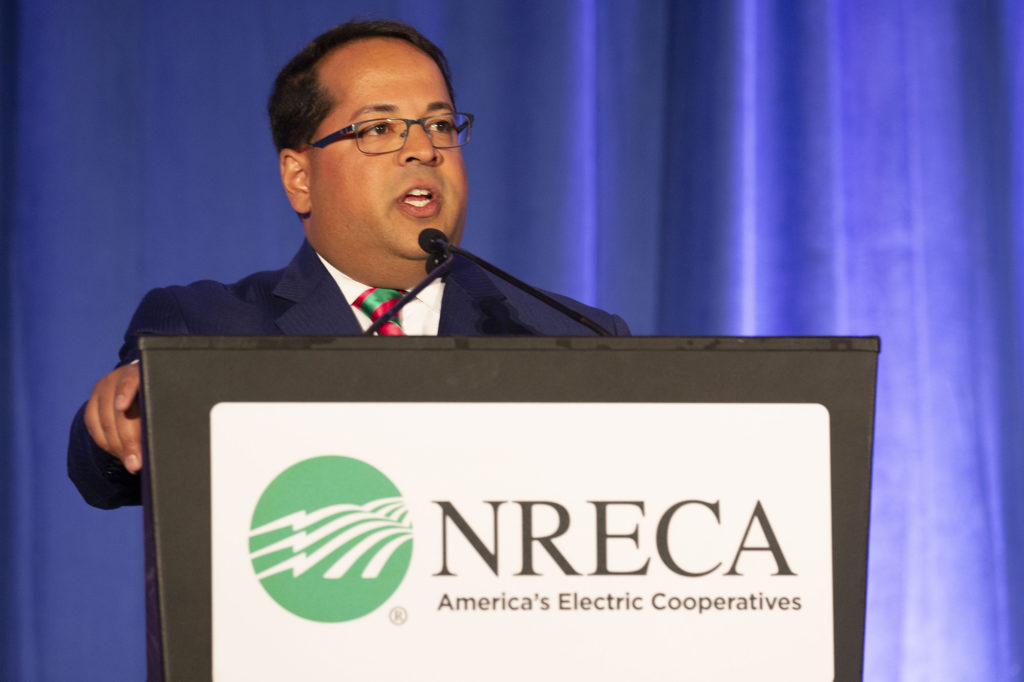
Neil Chatterjee said “there is no more important work” for FERC than improving the security and resilience of the electric grid.
One of the key questions that the commission is asking is what the grid should be designed to withstand, the FERC chairman said. It may not be possible to design for every possible scenario, but more must be done to protect the grid from evolving cyber threats from foreign adversaries, he said.
At the same time, stronger cybersecurity standards should be developed for the natural gas pipelines that supply power to many co-ops, Chatterjee said.
He called it “an exciting time” for the electric power industry as renewables, storage and distributed energy resources contribute to a dramatically changing energy landscape.
Conaway: Watch How Farm Bill Is Carried Out
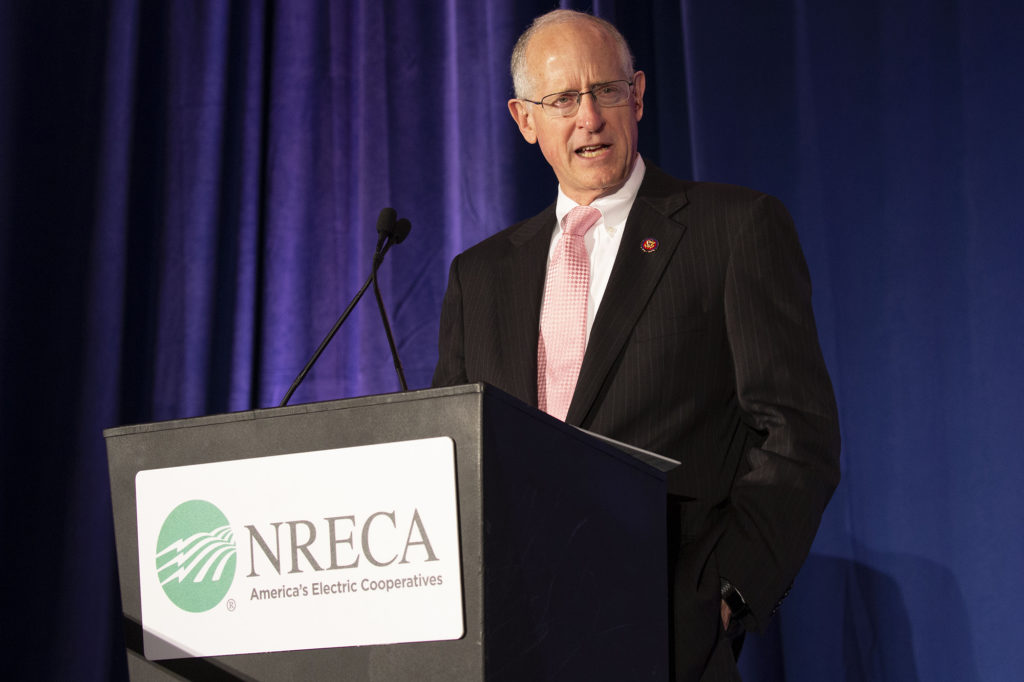
Rep. Mike Conaway of Texas, the senior Republican on the House Agriculture Committee, urged co-ops to closely watch how the 2018 Farm Bill is implemented over the next five years.
Conaway, who helped craft the bill last year when he was committee chairman, said the Department of Agriculture must develop more than 80 new rules as a result of the legislation.
“If we don’t get the rule right, let us know,” he said, noting that co-ops and other rural groups are going to “have to live with” the results.
Among the many provisions in the five-year bill is one that authorizes $350 million a year in loans and grants to finance rural broadband projects in underserved communities. Congressional appropriators still must provide the money each year.
Shimkus: Energy Costs Must Not Explode
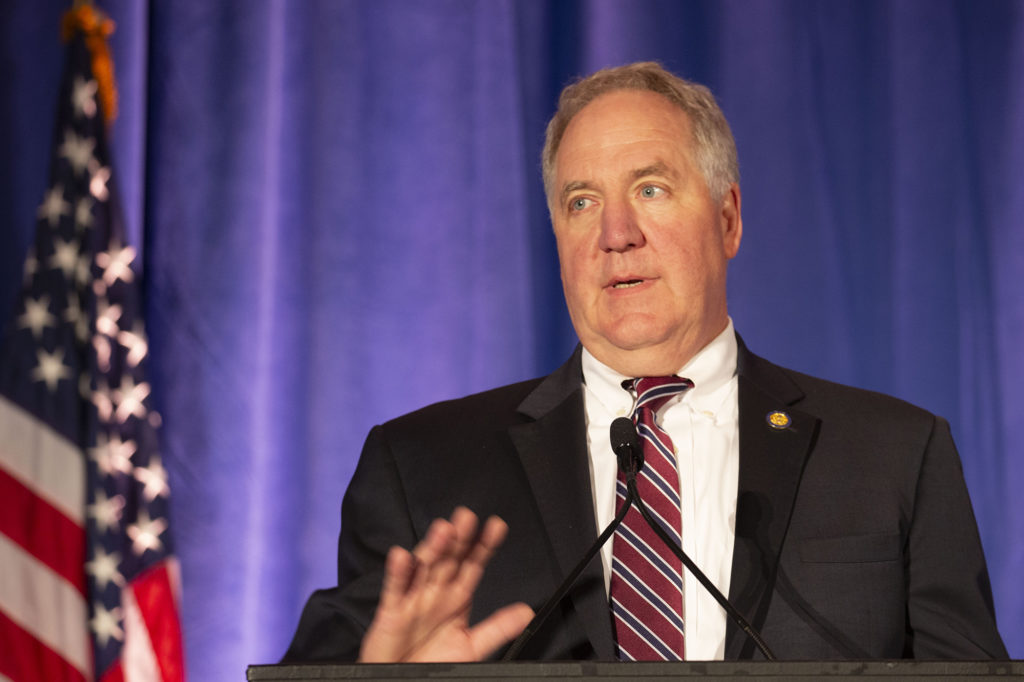
Rep. John Shimkus, R-Ill., a member of the House Energy and Commerce Committee, said he does not support climate change legislation that would greatly increase energy costs for low-income rural residents.
“Let’s make sure we don’t explode the cost of energy,” he said. While most Republicans now believe that climate change is a problem, “we think poverty is more harmful to our citizens,” he said.
“In this (climate change) debate, we want to make sure we are not discounted as not being partners in a solution,” the congressman said. “But we want to make sure the solution is affordable to your folks.”
Erin Kelly is a staff writer at NRECA.